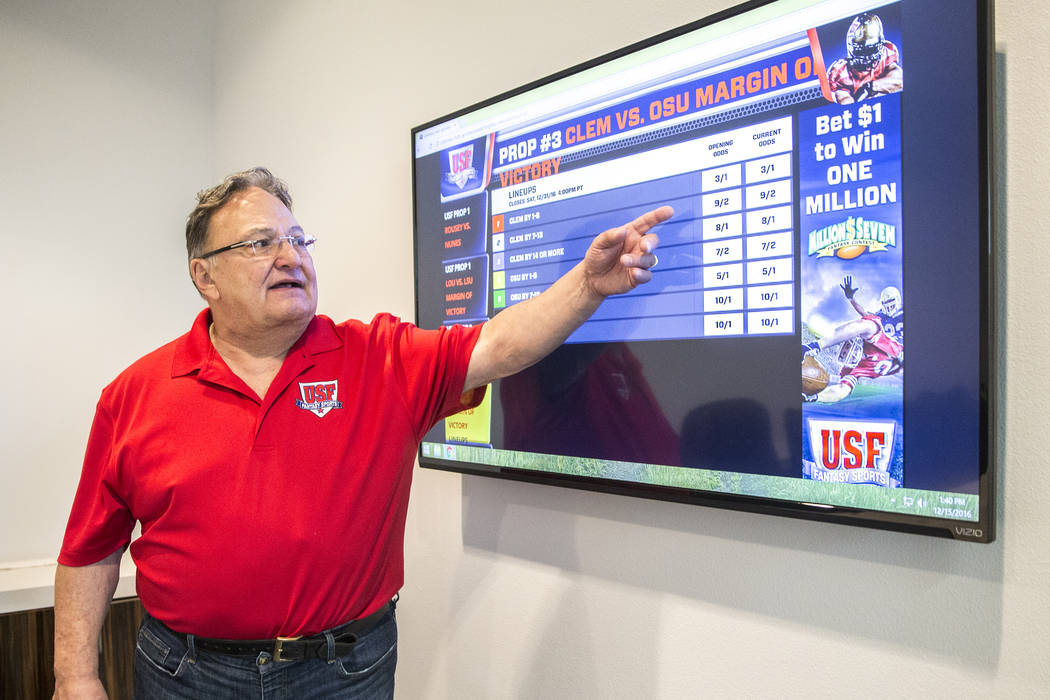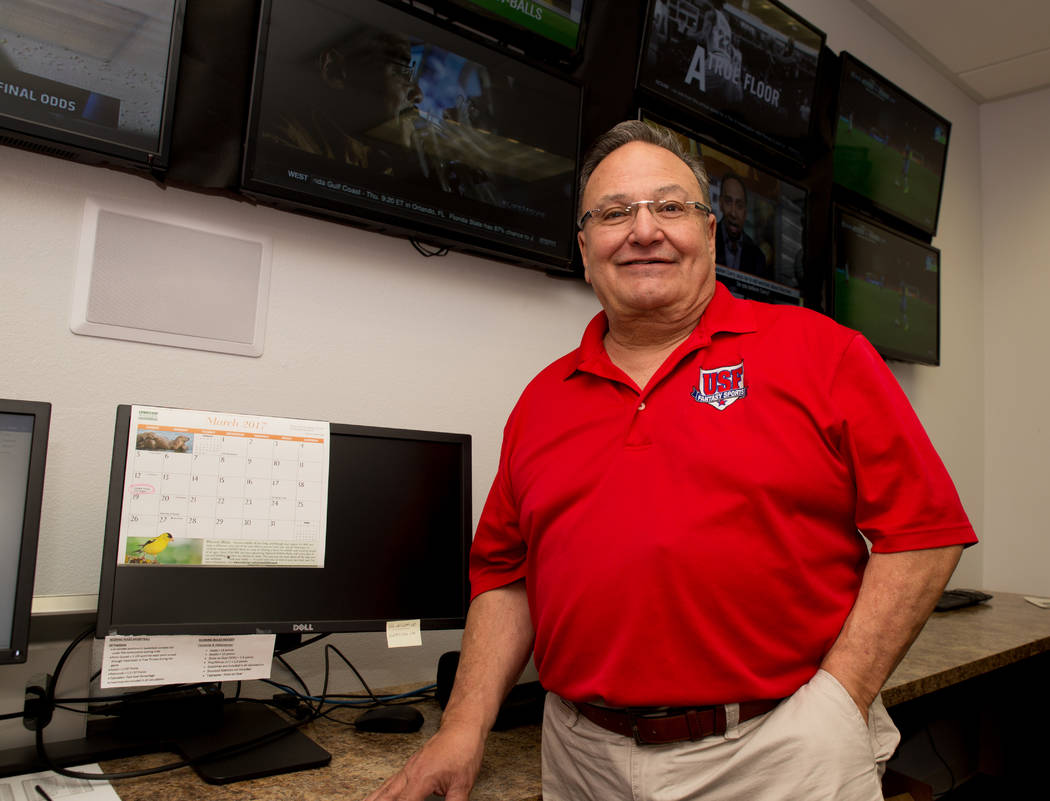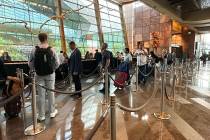Would competition from California sportsbooks hurt Nevada?
If California were to legalize sports wagering, Nevada sportsbooks would get crushed by the competition, right?
Not necessarily.
That’s the view of two veteran sportsbook operators I talked with after a coalition of 18 California Indian tribes announced they are working to get a statewide ballot referendum on next November’s ballot to allow on-site sports betting at tribal casinos and at several California racetracks.
Jay Kornegay, president and general manager of the Westgate sportsbook, believes Nevada would survive potential competition from the Golden State because of two key provisions within the referendum proposal — that bets would have to be made in person at a casino or track betting window, not through a mobile app, and that bets on any games involving California colleges and universities would be prohibited.
USBookmaking President Vic Salerno is even more confident, saying the California proposal would have no effect in Nevada because he knows Californians make their way to Las Vegas, Reno and Lake Tahoe for the complete experience and not just to bet on sports.
Kornegay and Salerno agree that the measure California voters will see is leaving openings for Nevada to exploit. The tribes are apparently attempting to make the sports-betting proposal more palatable to those who are on the fence about whether to allow a new wave of wagering in the state.
Not having mobile wagering is a way to get customers to enter casinos and tracks on a regular basis, while the ban on betting on California schools is designed to make the uninformed feel good that USC, UCLA, Stanford and others aren’t going to be corrupted by gambling.
The absence of mobile wagering will certainly affect how much tax revenue California could collect. New Jersey, which has the nation’s most liberal mobile sports wagering rules (participants can sign up to play without going to the casino company to verify information), sees about 80 percent of its sports bets on apps. At a gaming conference last summer, a panel of experts predicted that would rise to 90 percent within 10 years as players get more comfortable with the technology and ease of use.
While Californians still won’t be able to bet with Nevada apps unless they’re within the state’s borders, they still sign up to play via mobile means because they can make a bet, do something else while the game is played and still collect winnings before they go home.
Salerno admitted he’s not that familiar with the locations of tribal casinos, but like a lot of places in Southern California, it takes effort to get wherever they are because of traffic.
The California school ban may be the bigger deterrent to a successful rollout because the people who live there are invested fans in their respective programs. Kornegay said the ban could be reversed once the public becomes more educated about the role sportsbooks play in spotting corruption. Both Kornegay and Salerno fear the ban could drive some California bettors to illegal offshore sites.
New Jersey has a similar ban on its schools and already is considering lifting it (which could result in a rush of bets against the perpetually losing Rutgers football team). In Ohio’s sports wagering proposals, a ban on bets involving that state’s schools is under consideration.
Before 2001, Nevada sportsbooks kept UNLV and University of Nevada, Reno games off the board. When Sen. John McCain, R-Ariz., proposed making it illegal for casinos to take bets on all schools and universities that year, the result was a removal of the ban. McCain had been aggravated that Nevada sportsbooks spotted betting irregularities involving the Arizona State University basketball team in 1994 and notified the NCAA.
McCain pointed out at the time that it was hypocritical for Nevada casinos not to take bets on Rebel and Wolf Pack games. But instead of having books take all college sports off the board, as he had hoped, Nevada regulators struck down the ban on betting on UNLV and UNR.
Kornegay said that once Californians understand that books are watching out for their own financial interests by reporting betting irregularities and that the integrity of sports betting is stronger as a result, he expects they’ll ease up on the ban against betting on California schools.
And that’s when Nevada may have to start worrying about competition from California.
Contact Richard N. Velotta at rvelotta@reviewjournal.com or 702-477-3893. Follow @RickVelotta on Twitter.
























